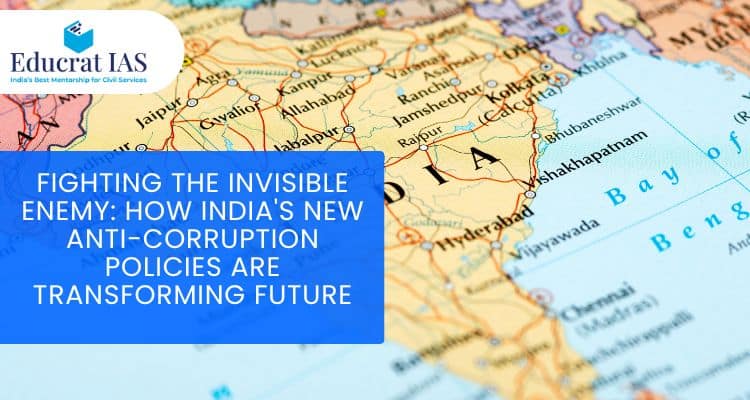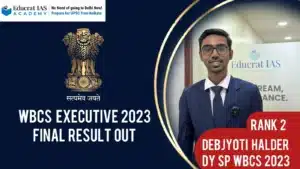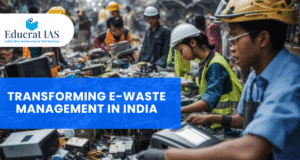The fight against corruption isn’t just about policies on paper anymore. It’s about creating a transparent, accountable system that directly impacts your daily life – from getting your driving license renewed in Park Street to securing business permits in New Town. Today, we’ll explore how India’s latest anti-corruption measures are reshaping governance and what it means for you as a citizen of Kolkata.
The Current State of Corruption in India: Understanding the Challenge
Corruption in India has been a persistent challenge, affecting everything from basic government services to major infrastructure projects. According to Transparency International’s 2024 Corruption Perceptions Index, India ranks 93rd out of 180 countries, highlighting the ongoing struggle against corrupt practices.
However, the scenario is rapidly evolving. Recent data shows that digital governance initiatives have reduced corruption-related complaints by approximately 40% in metropolitan areas like Kolkata. This significant improvement stems from systematic policy reforms and technological interventions implemented over the past two years.
The impact is particularly visible in West Bengal, where citizens now experience faster service delivery and greater transparency in government processes. Whether you’re applying for a passport in Kolkata or seeking agricultural subsidies in nearby districts, the changes are tangible and measurable.
Key Areas Where Corruption Traditionally Thrives
Unfortunately, certain sectors continue to face challenges:
- Public procurement and tendering processes
- Land registration and property dealings
- Tax administration and compliance
- Educational institutions and examination systems
- Healthcare services and medicine distribution
These areas have become primary targets for India’s enhanced anti-corruption framework, with specific measures designed to address each sector’s unique vulnerabilities.
Latest Anti-Corruption Policies: A Comprehensive Overview
But wait — there’s more you should know about the groundbreaking changes happening right now. The Indian government has introduced several revolutionary anti-corruption policies that are fundamentally changing how public administration operates.
The Digital India Anti-Corruption Initiative (2024-2025)
The Digital India Anti-Corruption Initiative represents one of the most comprehensive policy overhauls in recent history. This initiative focuses on three core pillars:
Transparency Through Technology: All government transactions above ₹10,000 must now be conducted through digital platforms with complete audit trails. This means when you apply for services at the Kolkata Municipal Corporation or any district office in Howrah, every step is digitally recorded and traceable.
Real-Time Monitoring Systems: Advanced AI-powered monitoring systems now track government processes in real-time, identifying potential corruption hotspots before they become major issues. These systems are already operational across major cities including Kolkata, Durgapur, and Siliguri.
Citizen Feedback Integration: New policies mandate immediate citizen feedback collection for all government services, creating a direct accountability mechanism that empowers you as a service user.
The Prevention of Corruption (Amendment) Act 2024
This landmark legislation introduces stringent penalties for corrupt practices while simultaneously protecting whistleblowers. Key provisions include:
- Enhanced punishment for public officials found guilty of corruption
- Asset forfeiture provisions that allow authorities to seize illegally acquired property
- Protected disclosure mechanisms for citizens reporting corruption
- Fast-track courts specifically for corruption cases
The Act also establishes clear timelines for government services, ensuring that your applications for various certificates or licenses cannot be indefinitely delayed without valid reasons.
Technology-Driven Solutions: The Game Changers
India’s approach to fighting corruption has become increasingly sophisticated, leveraging cutting-edge technology to create transparent, efficient systems.
Blockchain-Based Government Services
Several states, including West Bengal, are piloting blockchain technology for critical government services. This technology ensures that once information is recorded, it cannot be tampered with or manipulated. For Kolkata residents, this means:
- Immutable property records that prevent fraudulent land dealings
- Transparent tender processes for government contracts
- Secure academic credential verification systems
- Tamper-proof identity documents and certificates
Artificial Intelligence for Fraud Detection
AI-powered systems now monitor government databases to identify suspicious patterns and potential corruption. These systems can detect irregularities in:
- Government expenditure patterns
- Service delivery timelines
- Resource allocation decisions
- Permit and license issuance
The technology has proven particularly effective in identifying ghost employees and fraudulent benefit claims, saving millions of rupees in public funds.
Mobile-First Governance Platforms
The government has prioritized mobile accessibility to ensure that corruption-fighting tools are available to every citizen. New mobile applications allow you to:
- Report corruption incidents directly to anti-corruption authorities
- Track the status of your government applications in real-time
- Rate and review government services you’ve used
- Access grievance redressal mechanisms instantly
Institutional Reforms: Strengthening the Foundation
Before you move on to understanding specific success stories, it’s crucial to recognize how institutional reforms are creating lasting change in India’s anti-corruption ecosystem.
Enhanced Role of Central Vigilance Commission (CVC)
The Central Vigilance Commission has received expanded powers and resources to investigate corruption cases more effectively. Recent reforms include:
Increased Independence: The CVC now operates with greater autonomy, reducing political interference in corruption investigations.
Advanced Investigation Capabilities: New forensic technologies and specialized teams enable more thorough and faster investigations.
Preventive Vigilance Programs: Instead of just reactive measures, the CVC now focuses on preventing corruption through system improvements and awareness programs.
Strengthened Lokpal and Lokayukta System
The Lokpal at the central level and Lokayukta in states have been empowered with additional resources and clearer mandates. In West Bengal, the Lokayukta’s office has streamlined complaint procedures, making it easier for Kolkata residents to report corruption.
Key improvements include:
- Online complaint filing systems accessible 24/7
- Time-bound investigation processes with clear deadlines
- Regular public reporting of cases and outcomes
- Witness protection programs for those reporting corruption
Success Stories: Real Impact in Kolkata and West Bengal
The effectiveness of these anti-corruption measures becomes clear when you examine real-world results. Here are some significant success stories from the region:
Digital Transformation of Land Records
The digital land record system implemented across West Bengal has virtually eliminated fraudulent land transactions. Before digitization, property disputes and fake documents were common in areas like Salt Lake, New Town, and Rajarhat. Now, blockchain-secured land records ensure complete transparency and authenticity.
Citizens can verify property ownership, check for encumbrances, and complete transactions online, reducing opportunities for corruption while saving time and money.
Transparent Procurement Processes
Government departments in Kolkata now use e-procurement platforms for all purchases and contracts above ₹25,000. This system has:
- Reduced procurement costs by an average of 15-20%
- Eliminated middlemen who previously facilitated corrupt deals
- Increased competition among suppliers, benefiting the government
- Improved quality of goods and services procured
Educational Sector Reforms
The implementation of digital examination systems and online admissions has significantly reduced corruption in educational institutions across the region. Students in Kolkata now benefit from:
- Merit-based admissions with complete transparency
- Secure examination processes that prevent paper leaks
- Digital certificate issuance that eliminates fake documents
- Online grievance systems for addressing complaints quickly
Challenges and Future Directions
While progress is evident, several challenges remain in the fight against corruption. Understanding these challenges helps set realistic expectations and identifies areas needing continued focus.
Implementation Gaps
Despite excellent policies, implementation remains inconsistent across different levels of government. Rural areas often lag behind urban centers like Kolkata in adopting new technologies and processes.
Digital Divide Concerns
Not all citizens have equal access to digital platforms, potentially creating new forms of exclusion. The government is addressing this through:
- Common Service Centers in rural areas
- Multilingual interfaces in local languages including Bengali
- Offline backup systems for essential services
- Digital literacy programs for senior citizens and rural populations
Capacity Building Needs
Training government officials to effectively use new systems and maintain ethical standards requires ongoing investment and commitment.
How Citizens Can Contribute to the Anti-Corruption Movement
Your role as a citizen is crucial in sustaining the momentum of anti-corruption efforts. Here’s how you can actively participate:
Utilize Digital Platforms
Make full use of online government services whenever possible. By choosing digital platforms over traditional offline processes, you reduce opportunities for corruption while encouraging further digitization.
Report Corruption Incidents
Don’t hesitate to report corrupt practices through official channels. The government has established multiple reporting mechanisms including:
- National Anti-Corruption Helpline: 1031
- Online portals for anonymous reporting
- Mobile applications for real-time complaints
- Local grievance officers in every district
Stay Informed and Educated
Understanding your rights and the proper procedures for government services empowers you to resist corrupt demands and seek appropriate redressal when needed.
Economic Impact of Anti-Corruption Measures
The economic benefits of reduced corruption are substantial and directly impact your life as a Kolkata resident:
Improved Service Delivery
Faster processing times for government services mean less time away from work and reduced costs for multiple visits to government offices.
Enhanced Business Environment
Transparent regulations and reduced bureaucratic corruption make it easier to start and operate businesses, creating more employment opportunities in the region.
Better Resource Utilization
Reduced leakage of public funds means more money available for infrastructure development, healthcare, and education services that benefit everyone.
FAQs About Anti-Corruption Measures in India
Q: How can I report corruption in government offices in Kolkata?
You can report corruption through multiple channels: call the National Anti-Corruption Helpline at 1031, use the online complaint portal at pgportal.gov.in, or download the official government mobile app for anonymous reporting. Local grievance officers in each district also accept complaints in person.
Q: What protection do I have if I report corruption as a whistleblower?
The Prevention of Corruption (Amendment) Act 2024 provides comprehensive whistleblower protection including identity concealment, legal support, and protection from retaliation. Special courts handle these cases with expedited procedures to ensure your safety and privacy.
Q: How long should government services take, and what can I do if there are delays?
Most government services now have mandated timelines available on official websites. If your application exceeds these timelines without valid reasons, you can file a complaint through the Right to Service Act provisions or approach the local grievance officer for immediate action.
Q: Are the new digital systems secure and reliable?
Yes, the new digital platforms use advanced security measures including blockchain technology, encryption, and multi-factor authentication. Regular security audits ensure data protection and system reliability. You can safely use these platforms for all your government service needs.
Q: What changes can I expect in the next few years regarding anti-corruption measures?
The government plans to expand AI-powered monitoring systems, introduce more blockchain-secured services, and establish additional fast-track courts for corruption cases. By 2026, most government services will be fully digitized with real-time transparency features.
Take Action Today: Your Role in Building a Corruption-Free India
The fight against corruption isn’t just a government responsibility – it’s a collective effort that requires your active participation. As these new policies and technologies continue to transform how government services operate, you have the power to accelerate positive change in your community.
Whether you’re a student preparing for civil services, a business owner navigating regulatory requirements, or simply a citizen seeking efficient government services, staying informed about these developments gives you the tools to demand transparency and accountability.
Need expert guidance on understanding government policies, anti-corruption measures, or preparing for civil services? Our team at Educrat IAS provides comprehensive coaching and guidance to help you navigate the complexities of Indian governance and policy. From current affairs analysis to in-depth policy understanding, we’re here to support your journey toward becoming an informed, empowered citizen.
Let’s make it easier for you to stay ahead of policy changes and governance updates. Contact our expert team today at +91 91473 88921 or visit our comprehensive current affairs program to access the latest updates on anti-corruption measures, government policies, and their real-world impact.
Together, we can build the transparent, accountable India we all envision – one informed citizen at a time.





